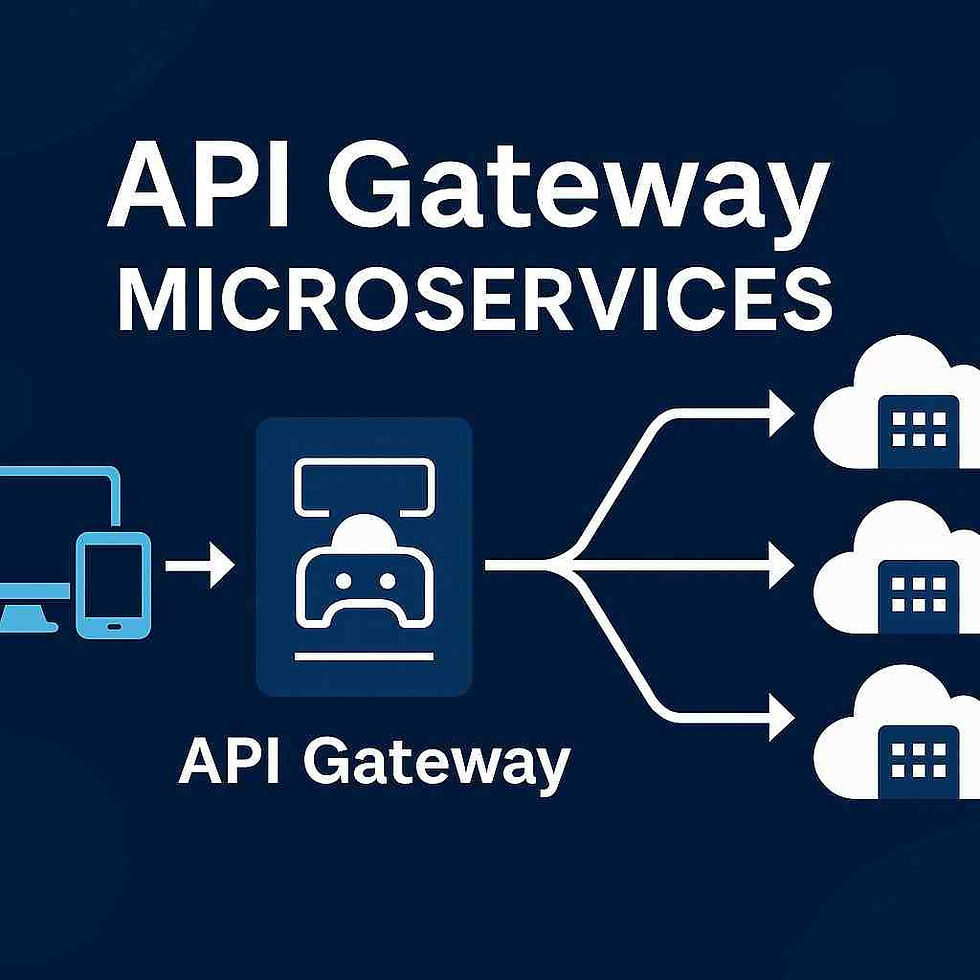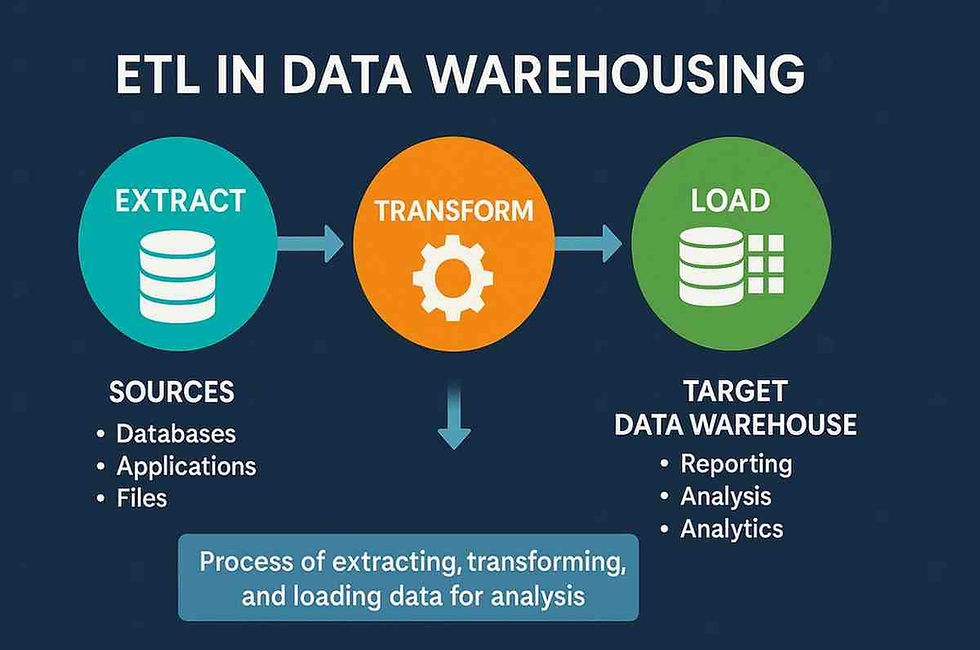Who Uses API? Understanding Its Role Across Industries
- Gunashree RS
- Jan 22, 2025
- 5 min read
Introduction: Unveiling the Users of APIs
In the digital age, APIs (Application Programming Interfaces) have become the backbone of seamless technology integration. From developers building software applications to businesses creating innovative customer experiences, APIs are used by a diverse range of individuals and industries.
But who exactly uses APIs, and how do they benefit from them? This guide delves into the vast array of API users, illustrating its critical role in modern technology and its undeniable impact on everyday life.
Whether you’re a tech enthusiast or a business professional, understanding the breadth of API users will provide valuable insights into why APIs are indispensable today.

What Are APIs? A Quick Recap
APIs are tools that allow software systems to communicate with each other. Think of them as bridges that enable one application to request and retrieve data or services from another.
For instance, when you use a weather app to check today’s forecast, it likely connects to a weather API to fetch the most accurate data. APIs simplify and standardize these interactions, making technology more accessible and efficient.
Who Uses API? A Detailed Breakdown
1. Software Developers: The Primary Users of APIs
Software developers are undoubtedly the largest group of API users. APIs empower developers to create robust applications by accessing prebuilt functionalities without starting from scratch.
How Developers Use APIs:
Integrating Third-Party Services: Developers use APIs to add functionalities like payment gateways (e.g., PayPal, Stripe) or geolocation services (e.g., Google Maps).
Accelerating Development: APIs save time and resources by providing reusable components.
Testing and Debugging: Tools like Postman help developers test APIs for smooth integration.
APIs have transformed software development, making it faster, scalable, and more collaborative.
2. Businesses and Enterprises
Businesses across industries leverage APIs to enhance operations, improve customer experiences, and drive innovation.
How Businesses Use APIs:
Streamlining Operations: APIs connect internal systems like HR software, accounting tools, and CRM platforms for better efficiency.
Customer Engagement: APIs power features like chatbots, personalized recommendations, and payment integrations on websites and apps.
Expanding Reach: By exposing APIs to third-party developers, businesses can create ecosystems that expand their influence.
Examples:
Amazon uses APIs to manage its vast e-commerce platform, enabling sellers and third-party apps to integrate seamlessly.
Netflix uses APIs to deliver personalized content recommendations to millions of users.
3. Startups and Entrepreneurs
Startups rely heavily on APIs to innovate quickly without the need for extensive resources. APIs allow them to integrate essential features and focus on their core offerings.
Why APIs Matter for Startups:
Cost-Effective Solutions: APIs eliminate the need for building functionalities from scratch.
Rapid Prototyping: Startups can quickly build and test Minimum Viable Products (MVPs).
Scalability: APIs provide flexibility to scale operations as businesses grow.
For example, many fintech startups utilize APIs from payment gateways, banking systems, or credit scoring services to build financial apps.
4. E-Commerce Platforms
E-commerce platforms rely on APIs to deliver seamless shopping experiences and backend management.
How APIs Support E-Commerce:
Inventory Management: APIs connect inventory systems with online storefronts to sync product availability in real-time.
Payment Processing: APIs from payment providers like PayPal, Stripe, or Square handle secure transactions.
Shipping and Logistics: APIs from companies like FedEx or UPS streamline shipping label generation and package tracking.
5. Social Media Platforms
Social media platforms expose APIs to enable third-party applications to interact with their systems.
Examples of Social Media APIs:
Facebook Graph API: Used for accessing profile data, pages, and posts.
Twitter API: Enables developers to retrieve tweets and build tools like analytics dashboards.
Instagram API: Supports features like embedding photos, analyzing engagement, and managing business accounts.
APIs allow brands to automate posting, analyze social media trends, and manage multiple accounts effortlessly.
6. Mobile App Developers
APIs are integral to mobile app development, powering features like notifications, location tracking, and cloud storage.
API Use in Mobile Apps:
Geolocation Services: APIs like Google Maps or Mapbox enable location-based services.
Push Notifications: APIs from Firebase or OneSignal provide notification services.
Cloud Integration: APIs like AWS and Microsoft Azure connect apps to cloud storage.
By integrating APIs, mobile developers deliver powerful applications with minimal effort.
7. Financial Institutions and Fintech Companies
APIs play a critical role in transforming the financial services industry, particularly in open banking and fintech solutions.
Use Cases in Finance:
Payment Gateways: APIs from providers like Stripe and PayPal handle secure online payments.
Banking APIs: Open banking APIs allow customers to connect their bank accounts to third-party apps.
Fraud Detection: APIs enable real-time monitoring and prevention of fraudulent transactions.
For example, companies like Plaid use APIs to connect bank accounts with apps like Venmo or Robinhood.
8. Healthcare Organizations
In the healthcare industry, APIs enable secure data sharing, telemedicine, and patient management systems.
How Healthcare Uses APIs:
Electronic Health Records (EHR): APIs connect EHR systems with other healthcare apps for seamless data access.
Telemedicine: APIs power virtual consultations by integrating video conferencing and patient data sharing.
Wearables and IoT: APIs connect devices like fitness trackers to healthcare platforms.
With APIs, healthcare providers improve patient care and operational efficiency.
9. Education and E-Learning Platforms
Educational institutions and e-learning platforms use APIs to deliver engaging and interactive learning experiences.
Use Cases in Education:
Learning Management Systems (LMS): APIs connect LMS platforms with tools for video lectures, quizzes, and student progress tracking.
Content Integration: APIs enable platforms to fetch content from sources like YouTube or Khan Academy.
Collaboration Tools: APIs integrate tools like Zoom or Slack for virtual classrooms.
10. Government Agencies and Public Services
Governments worldwide use APIs to enhance transparency, deliver digital services, and encourage innovation.
Examples of Government API Usage:
Open Data APIs: Governments provide public access to datasets like census data or crime statistics.
Service Portals: APIs connect online portals with systems for tax filing, license renewal, and more.
Smart Cities: APIs enable IoT devices to communicate, improving urban infrastructure management.
11. Gaming Industry
In the gaming world, APIs enhance multiplayer experiences, in-game purchases, and analytics.
Gaming API Examples:
Steamworks API: Enables game developers to integrate Steam features like leaderboards and achievements.
Unity APIs: Provide tools for building and optimizing games across platforms.
APIs bring immersive experiences to gamers by connecting games to cloud services, user profiles, and multiplayer servers.
FAQs
1. Who are the primary users of APIs?
APIs are used by developers, businesses, startups, mobile app creators, social media platforms, and more.
2. Why are APIs important for businesses?
APIs enhance operational efficiency, improve customer experiences, and enable businesses to expand through integrations.
3. Can non-technical users benefit from APIs?
Yes, APIs power tools and platforms that non-technical users can access, like payment systems, analytics dashboards, and integrations.
4. What industries rely on APIs the most?
Industries like technology, e-commerce, finance, healthcare, and gaming rely heavily on APIs.
5. How do APIs benefit developers?
APIs save developers time by providing prebuilt functionalities and simplifying integration with external systems.
6. Can APIs improve cybersecurity?
Yes, APIs can enhance cybersecurity by enabling secure data exchanges, implementing authentication protocols, and monitoring systems.
Conclusion: APIs for Everyone
APIs are not just tools for developers; they are transformative enablers for businesses, governments, and individuals. From startups innovating with minimal resources to large corporations streamlining operations, APIs have revolutionized how technology is built, accessed, and utilized.
As the demand for interconnected systems grows, so does the reliance on APIs. By understanding who uses APIs and their applications, it’s clear that APIs are integral to modern innovation and technological advancement.
Key Takeaways
APIs are used by a wide range of individuals and industries, from developers to governments.
They enable seamless communication between software systems.
Businesses use APIs to enhance efficiency, improve customer experiences, and drive innovation.
APIs power applications in finance, healthcare, e-commerce, gaming, and more.
Startups and entrepreneurs benefit from APIs by accessing cost-effective, scalable solutions.




Government Agencies and Public Services play an important role in supporting citizens, and there is a strong possibility that digital systems may further improve access, efficiency, and transparency in the future. It can be expected that online identity processes and service delivery methods could expand, offering more opportunities for people to connect with government support. In this context, ladki bahin ekyc gov in may represent a potential digital initiative aimed at empowering women through streamlined public services. There is a chance that such developments could reduce delays, improve trust, and create broader inclusion. Overall, these efforts suggest a future where public services may become more responsive and accessible for everyone.